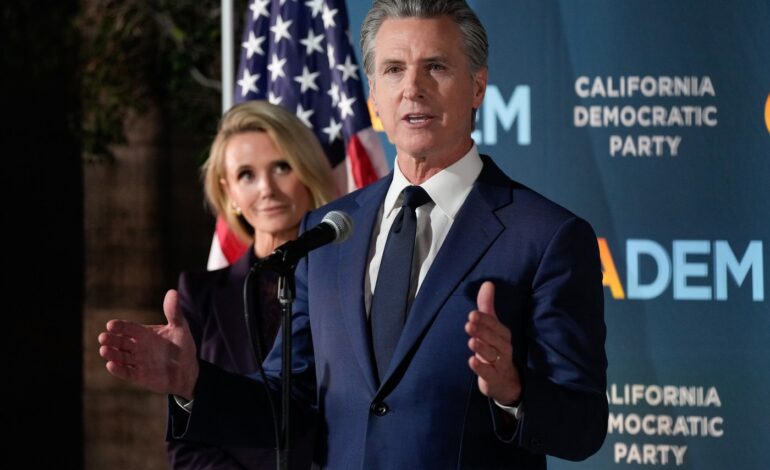California Voters Approve Prop 50 to Redraw Electoral Maps

Voters in California have decisively approved Proposition 50, a measure that allows the state’s Democratic leaders to redraw congressional electoral maps. This decision, made on November 7, 2023, empowers Governor Gavin Newsom and the Democratic-controlled legislature to create up to five additional Democratic-leaning congressional seats. The move is seen as a direct response to similar redistricting efforts in Republican-led states, including Texas and North Carolina, which have drawn criticism for gerrymandering tactics.
The approval of Prop 50 reflects a growing frustration among Democrats with the current political landscape. Instead of fostering collaboration, the redistricting process has turned into a contentious battleground. The situation has prompted calls for a reevaluation of how electoral maps are drawn, with many advocating for a return to independent processes following the decennial census, which is set for 2030.
Some critics argue that the redistricting efforts led by Democrats mirror the actions of Republicans, who have sought to manipulate electoral boundaries to secure political advantages. The belief is that each party’s attempts at gerrymandering further polarize the political environment, rather than promoting fair representation. A spokesperson for the California Republican Party expressed intentions to challenge the new maps, suggesting that such actions undermine the will of the voters.
In light of this, the broader implications of these redistricting strategies are raising questions about the long-term viability of such maneuvers. The recent elections in New Jersey and Virginia, where Democrats exceeded expectations, highlight the unpredictable nature of voter sentiment. With state-level races in places like Pennsylvania and Georgia also signaling potential shifts, it remains uncertain whether gerrymandering can guarantee stable majorities.
The sentiment among many political analysts is that the cycle of retaliatory redistricting is detrimental to the democratic process. Donald Trump has often been cited as a driving force behind the aggressive redistricting strategies employed by Republicans, advocating for a perceived right to dominate electoral outcomes. This approach has led to concerns that the political landscape is becoming increasingly volatile.
The discussion around Prop 50 has opened a dialogue about the necessity of reforming redistricting practices nationwide. Many advocates argue that a return to independent commissions to oversee district drawing could alleviate some of the contentiousness that has arisen from partisan manipulation.
As California moves forward with its redistricting plans, the hope remains that other states will reconsider their own approaches. A collaborative effort to maintain fair electoral processes could ultimately benefit voters across the political spectrum. The call for an end to this cycle of gerrymandering resonates with many Americans who are eager for a political environment that prioritizes representation over political gain.
In conclusion, the approval of Prop 50 is a significant development in California’s political landscape. While it addresses immediate concerns regarding representation, the ongoing debate about gerrymandering and electoral fairness continues to loom large, necessitating a thoughtful reconsideration of how electoral maps are drawn in the future.






